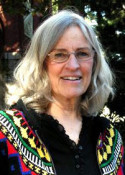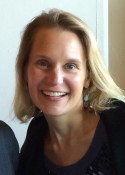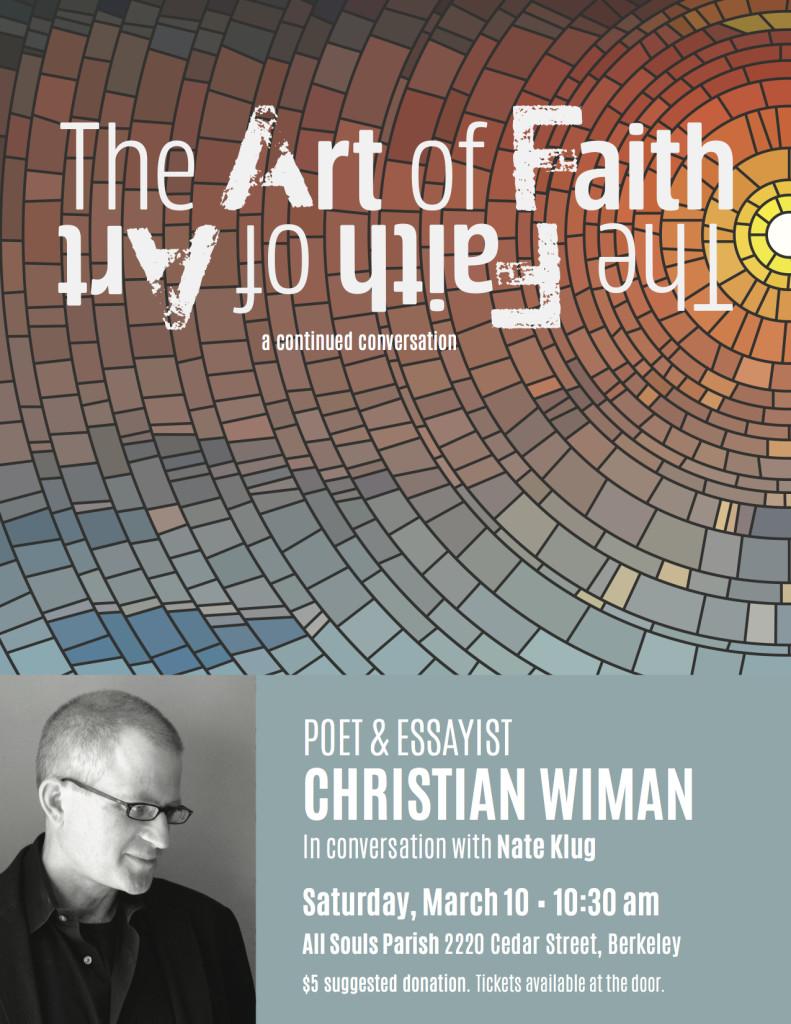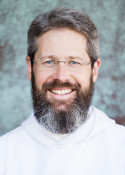FROM THE RECTOR
Adaptive Change
In a recent conversation about why structural change is so hard to come by, I was reminded of some of the most helpful research and writing that I have come across in recent years about what it takes to make change that sustains.
Through the work of Chris Argyris and Donald Schoen, and later Robert Kegan and Lisa Laskow Lahey, I have come to freshly appreciate the challenges of making real change. We know this challenge on a personal level—when we try to change our diet or exercise, or attempt to live our relationships in a different way. Surprisingly, there is a similar kind of resistance when the changes are much bigger—gun violence, immigration, entrenched misogyny, or systemic racism.
Often we attempt to make a substantive change by paying attention to the surface components. While this may attend to some of the issues at hand, it usually doesn’t address the sub-surface powerful forces at work. In the language of Kegan and Lahey, technical fixes won’t be effective when adaptive change is called for.
To be sure, there are times when technical fixes are necessary stepping stones on the road to greater change. Many years ago, it was the The Rev. Dr. Martin Luther King, Jr, who said that, “We must go on to say that while it may be true that morality cannot be legislated, behavior can be regulated. It may be true that the law cannot change the heart but it can restrain the heartless. It may be true that the law cannot make a man love me but it can keep him from lynching me and I think that is pretty important, also.”
As those behaviors are being restrained legislatively, the deeper work of unearthing the values, assumptions, and what Kegan and Lahey call the “hidden competing commitments” is essential. When we do this work, as an individual, a family, a congregation, or a culture, this is when the fruit of lasting change is borne.
It is for this reason that we started this season of Lent with Jesus as he emerges from the wilderness, calling out, “The time is fulfilled, and the kingdom of God has come near; repent, and believe in the good news.” (Mk. 1:15) Every Lent begins with this call to repentance, in the Greek metanoia, or a change of mind, of heart.
If we really want to change, to re-form ourselves, we have to do the deeper work of coming to grips with our values and assumptions—not as we wish they were, but as they truly are. My sense is that with all of the systemic sins that plague this nation, as well as the marks that we miss as people, the only way to repair the breech, to restore wholeness and therefore regain integrity, comes through the challenging work of real repentance. What do I/we value? What are the commitments that we are making that at present we are largely unaware of? What I am willing to let go of to take on this new way of being?
It is daunting work, this real change, but the gift we have, friends, is a trust that we will not be alone in this work in the wilderness. There will be others along this road with us, ahead and behind. And that there is a Spirit alongside and within as we risk ourselves in the process.
My concern, for myself and for all of us, is that if we don’t engage in this soul-searching work, we will simply endure much of the same. And yet, we seem to be in a moment when this deeper work is beginning. May the words of our mouths, the meditations of our hearts, and the works of our hands help to bring this Realm of God near.
Peace,
Phil+
On the Silence
 2 minutes 10 seconds
2 minutes 10 seconds
Last Sunday I was sitting in church during the period of silence after the homily, and rather than put those 2 minutes and 10 seconds to any helpful purpose, I counted the seconds passing on my watch. What do most of us do during that time? Do I ponder my reaction to the Gospel passage? Rate the homily from 1 to 10? Make a shopping list? What does the silence mean to me?
Elijah, in the Book of Kings, searched for God in a hurricane, an earthquake, a fire, and finally found God in a still small voice of silence. In that moment, maybe a fleeting second, time stood still and there was only Elijah and God. If Elijah did not find God in the hurricane or fire, but only in silence, and if Jesus found perfect peace in the desert alone, and if some say that silence is the first language of God, then why do we often avoid it, squirming and counting the seconds with such impatience when we are asked to be still for a few moments?
Keeping silence is contrary to our culture and to our human condition. Research shows that leaving subjects alone for 10 minutes without a phone or music or screens results in great discomfort and an inability to concentrate. In one study, over a third of the participants had to give up. Apparently, we humans are worse than goldfish at concentrating. We average 8 seconds and goldfish can maintain focus for 9.
And yet, the benefits of a short period of silence are clear for our physical and emotional wellbeing. We breathe better, are more relaxed and better focused. And as spiritual seekers, silence may be the most profound pathway into communion with God.
“In the stillness of the quiet, if we listen, we can hear
the whisper of the heart giving strength to weakness,
courage to fear, hope to despair.”
– Howard Thurman
Silence may not be just an absence of sound, but actually a phenomenon in and of itself. Silence can take us out of ourselves, transcending into God’s presence, granting us a time to “be still and know that I am God”.
The Sunday morning service has a beautiful rhythm in which those 2 minutes and 10 seconds may be the purest core of our worship together. As the choir processes in we leave the outside world and all its material preoccupations, and gather into the sacred world of the liturgy, the formal prayers, the lessons and the homily. And then at last we enter the deepest chambers of the peace that passes understanding. We sense the pure presence of the Beloved, and from there we are invited to pray aloud together, pass the peace, commune together, and then are given the benediction as we return to the world outside.
“May we all grow in grace and peace, and not neglect
the silence that is printed in the center of our being.
It will not fail us.”
– Thomas Merton
– Diane Haavik
WELCOMING NEW MEMBERS
 In December, we welcomed 24 new members into the All Souls family. Today and in the coming weeks, we’ll hear from many of them.
In December, we welcomed 24 new members into the All Souls family. Today and in the coming weeks, we’ll hear from many of them.
Hi, I’m Katie. I live in Berkeley/Oakland – a location right on the Hayward fault (as I was recently reminded) that has a USPS address in Berkeley but is legally within Oakland’s jurisdiction. I’ve been in the Bay Area since right after graduate school – a program for a Masters in English Literature, which, as the cliche goes, left me with no clear job direction except further schooling and the potential academic appointment. So, I shifted course and went to law school at UC Berkeley. Now I work as a health care regulatory attorney ‘in house’ for Kaiser Permanente. Outside of work, I read a lot, swim, and try to take in the natural world and appreciate the little pleasures en route through all the errands and mundanities. I’m grateful to have found All Souls. I was baptized and confirmed in the Episcopalian Church during my childhood/youth in Baltimore. So, when I suddenly felt the yearning for faith again last summer, I sought out an Episcopalian parish. All Souls has been so welcoming and I have found return to Sunday services to be very nourishing. I look forward to the completion of my first full liturgical year with the parish and to becoming more engaged with this community.
– Katie Saral
Faith in Words

Now and again, people emerge who have the gift of interpreting our shared faith through new words. They can give insight and possibility, and maybe more than anything, accessibility, to ideas that can feel out of reach for many of us. Poet and essayist Christian Wiman is one such writer and scholar. You’ve probably heard that he’s coming by now, in just a week and change. We’re collaborating with First Church to host two events: on Friday, March 9 at 7:30 pm, when Wiman will read, speak, and be in conversation with First Church’s Public Theologian in Residence and poet Marvin K. White. Then on Saturday morning, he’ll continue with a more intimate conversation with us and with local poet Nate Klug. The event on Friday evening will be at First Church, and you can buy tickets online here. The conversation on Saturday morning will be at 10:30 am here in the All Souls Parish Hall. There will be a $5 suggested donation at the door.
Why come? Why set aside time, maybe even both on Friday and Saturday to listen and engage, with Wiman and with each other, about the words of our faith, and conversely then, the faith of our words? Listening to him and reading some of his work may well inspire you more than anything else we might offer, so here’s a selection:
First, have a listen to Wiman reading some of his poems. While you’re there, you might also enjoy his recent interview with Krista Tippett.
If you’d rather watch, take a look at this this interview of Christian Wiman with Bill Moyers, or this remarkable talk he gave at the Yale Institute of Sacred Music.
Or, if nothing else, just consider a few of his beautiful words:
In his essay I Will Love You in the Summertime, he writes, “But do I think that sometimes life and language break each other open to change, that a rupture in one can be a rapture in the other, that sometimes there are, as it were, words underneath the words—even the very Word underneath the words? Yes, I do.”
Then in Gazing Into the Abyss, Wiman offers a glimpse into why he practices faith: “I go to church on Sundays, not to dispel this doubt but to expend its energy, because faith is not a state of mind but an action in the world, a movement toward the world. How charged this one hour of the week is for me, and how I cherish it, though not one whit more than the hours I have with my wife, with friends, or in solitude, trying to learn how to inhabit time so completely that there might be no distinction between life and belief, attention and devotion.”
The time in conversation with this writer is a rare treat. Mark you calendars, buy your tickets, and get excited!
INTERFAITH IMMIGRATION VIGIL
Join us this Saturday, March 3rd at 11:00 am at the West County Detention Facility in Richmond (5555 Giant Highway) for the monthly interfaith immigration vigil. We’ll gather with song, prayer, sacred story, and make our presence known as loudly as we can for our sisters and brothers being detained. Contact Margaret Sparks for carpooling information.
SUMMER BOOK NOMINATIONS
Nominate a book for our parish-wide summer book group! Find the nomination slips and the jar on the Cedar side counter in the Narthex, and in the chapel (for the 7:30 service goers), or online here.
CREATING A CULTURE OF PEACE
Active Nonviolence Workshop in Jesus’ Third Way
This introductory workshop introduces nonviolent practices through interactive group exercises, stories, reflection and discussion. It provides strategies to engage others respectfully and constructively, even in sticky social situations. Group leaders, teens, and anyone dealing with conflict or controversy in the family, school, work, or organizations, will feel more creative and empowered to respond. Come to learn with Janet Chisholm, a longtime nonviolence trainer and Episcopalian activist.
When: Saturday, March 10, 9:00 a.m. to 1:00 p.m.
Where: St. Paul’s, 114 Montecito Ave, Oakland
Registration: https://diocal.wufoo.com/forms/creating-a-culture-of-peace/
ALL SOULS KICKBALL
Kickball is about to start up again this spring (the season begins the first weekend of April). Games are on Friday evenings starting at 7p for 6-8 weeks, depending on weather delays and such. We’ve got two victories under our belts and are looking for a few more this season, so come join us (or just come watch in the stands and cheer us on)! See David Gutfeld for more information, davidlawrencegutfeld@gmail.com.




